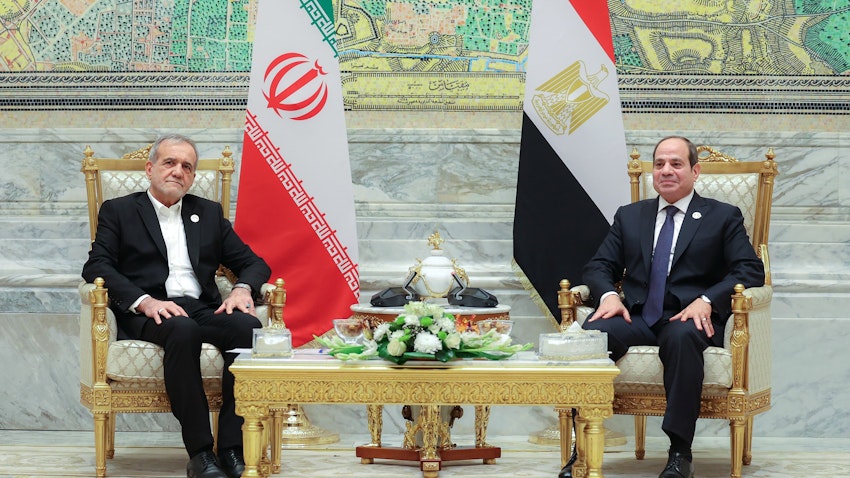Efforts to restore full diplomatic ties between Egypt and Iran, severed for over four decades, are gaining momentum. Recent high-level meetings signal significant progress, paving the way for potential collaboration on critical regional issues.
Historic Meeting Between Leaders in Egypt
On December 19, Iranian President Masoud Pezeshkian met Egyptian President Abdel Fattah El-Sisi on the sidelines of the D-8 Organization for Economic Cooperation summit. This marked a significant step toward reconciliation. The two leaders discussed regional conflicts and praised recent steps to restore relations. Both expressed optimism about reopening embassies, signaling a transformative shift in their historically strained relationship.
The Iranian delegation visited key sites in Cairo, including cultural and religious landmarks, emphasizing the deep-rooted ties between the two nations. Iranian Foreign Minister Abbas Araghchi’s engagement in Egypt further strengthened diplomatic efforts, underscoring the shared goal of enhancing regional stability.
A History of Strained Egypt Iran Relations
The tension between Egypt and Iran began after Egypt signed a peace treaty with Israel in 1979, a move that Iran strongly opposed. Further straining relations, Egypt provided refuge to Iran’s ousted Shah, and Tehran retaliated by naming a street after the assassin of Egyptian President Anwar Sadat.
Over the decades, conflicts such as the Iran-Iraq War (1980–1988) and differing positions on the Syrian Civil War deepened the divide. However, Iran’s decision to rename the controversial street in 2004, coupled with mutual interests in stabilizing Syria, gradually softened their stance.
The Role of Regional Diplomacy
Third-party mediation by Iraq and Oman has been instrumental in fostering dialogue between the two countries since 2021. These efforts gained traction after Saudi Arabia and Iran normalized relations in 2021, removing a significant obstacle to Egypt-Iran rapprochement.
Iran has shifted its strategy, focusing on strengthening ties with Arab states to counter regional isolation and balance against the growing trend of Arab normalization with Israel. Egypt, on the other hand, seeks to expand its influence in the region by maintaining balanced relations with key players, including Iran.
Strategic Motivations for Reconciliation
Both Egypt and Iran see mutual benefits in mending ties. For Iran, improved relations with Egypt would bolster its regional diplomacy, especially after the ousting of Syrian President Bashar al-Assad, an ally of Tehran. Egypt, facing challenges in Gaza and Syria, recognizes the potential advantages of engaging with Iran to address shared concerns.
Tehran aims to counter US-led efforts to isolate it and navigate the shifting alliances in the Middle East. Cairo, with its own ambitions for greater regional influence, sees value in collaborating with Iran on strategic issues, such as the Gaza conflict and developments in Syria.
Potential Regional Impacts
Restoration of ties between Egypt and Iran could reshape the Middle Eastern geopolitical landscape. Coordination on issues such as Syria’s reconstruction and the Gaza conflict could strengthen regional stability. Enhanced cooperation may also foster greater economic and cultural exchanges between the two historically influential nations.
Both countries must address lingering mistrust and navigate the complex dynamics of their alliances. Iran’s ties with non-state actors and Egypt’s close relationships with the Gulf states add layers of complexity to their reconciliation efforts.
Looking Ahead
The steps toward full diplomatic restoration between Egypt and Iran mark a potential turning point for the Middle East. The reopening of embassies, anticipated in the near future, would symbolize a new chapter in their relationship.
As the two nations work to overcome historical grievances, their partnership could serve as a stabilizing force in a region marked by decades of conflict and political rivalry. The path forward may not be without obstacles, but the renewed engagement between Cairo and Tehran signals hope for a more cooperative and peaceful Middle East.

